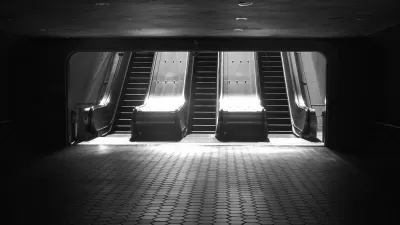In an unusual showing of agreement by both houses, it would appear that Congress will terminate funding for HSR in a bill that authorizes funding for the transportation department next year. The House hears the bill Nov. 17; Senate the next day.
The bill marks "an end to the president's misguided high-speed rail program, but it is not the end of American high-speed rail," said Rep. Bill Shuster, R-Pa., chairman of the House Transportation and Infrastructure Committee's railroad subcommittee.
The House Republicans indicated preference for the dense Northeast Corridor as a line likely to receive future HSR funding should it be authorized as opposed to the much broader application that President Obama conceived. Funds currently allocated would not be rescinded assuming that they meet their deadlines. In California, that nation's only planned HSR project after Florida rejected their federal funding, over $3 billion is at stake from the current fiscal year. Construction must begin next year in the Central Valley.
It is still possible for HSR projects to receive future funding from existing transportation funds such as the the Transportation Investment Generating Economic Recovery, or TIGER Discretionary Grant program program that will be funded. Not so lucky was the Sustainable Communities Initiative as reported by Streetsblog's Tanya Snyder:
"TIGER got $500 million. The House had zeroed it out altogether. The Senate, which had provided for $550 million, clearly won the day on this one. It includes language prioritizing rail, highway, and transit projects that improve or expand existing systems, rather than building new ones."
"Another big loss: the– HUD's contribution to the interagency Partnership for Sustainable Communities – has been eliminated. "The Partnership for Sustainable Communities is one of the federal government's most effective tools," said Geoffrey Anderson of Smart Growth America in response to the cut. "
FULL STORY: Congress About To Kill High-Speed Train Program

Alabama: Trump Terminates Settlements for Black Communities Harmed By Raw Sewage
Trump deemed the landmark civil rights agreement “illegal DEI and environmental justice policy.”

Study: Maui’s Plan to Convert Vacation Rentals to Long-Term Housing Could Cause Nearly $1 Billion Economic Loss
The plan would reduce visitor accommodation by 25% resulting in 1,900 jobs lost.

Why Should We Subsidize Public Transportation?
Many public transit agencies face financial stress due to rising costs, declining fare revenue, and declining subsidies. Transit advocates must provide a strong business case for increasing public transit funding.

Paris Bike Boom Leads to Steep Drop in Air Pollution
The French city’s air quality has improved dramatically in the past 20 years, coinciding with a growth in cycling.

Why Housing Costs More to Build in California Than in Texas
Hard costs like labor and materials combined with ‘soft’ costs such as permitting make building in the San Francisco Bay Area almost three times as costly as in Texas cities.

San Diego County Sees a Rise in Urban Coyotes
San Diego County experiences a rise in urban coyotes, as sightings become prevalent throughout its urban neighbourhoods and surrounding areas.
Urban Design for Planners 1: Software Tools
This six-course series explores essential urban design concepts using open source software and equips planners with the tools they need to participate fully in the urban design process.
Planning for Universal Design
Learn the tools for implementing Universal Design in planning regulations.
Smith Gee Studio
Alamo Area Metropolitan Planning Organization
City of Santa Clarita
Institute for Housing and Urban Development Studies (IHS)
City of Grandview
Harvard GSD Executive Education
Toledo-Lucas County Plan Commissions
Salt Lake City
NYU Wagner Graduate School of Public Service



























